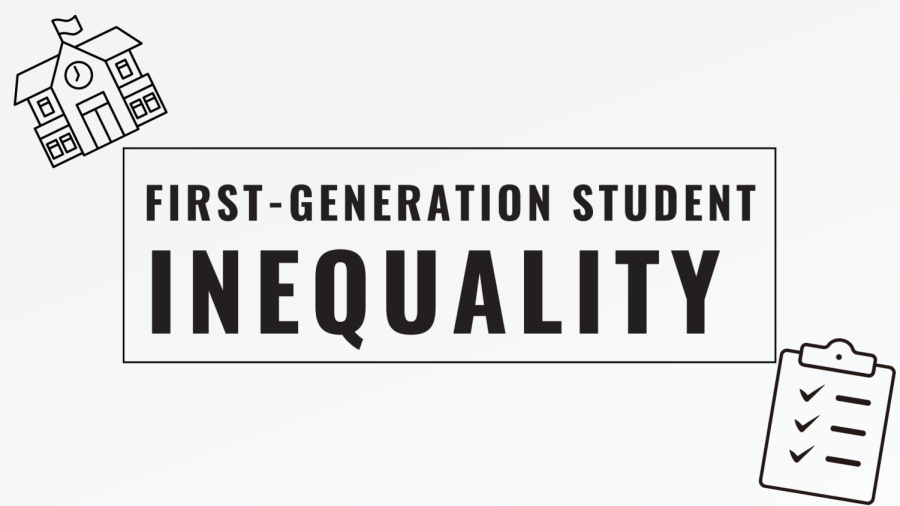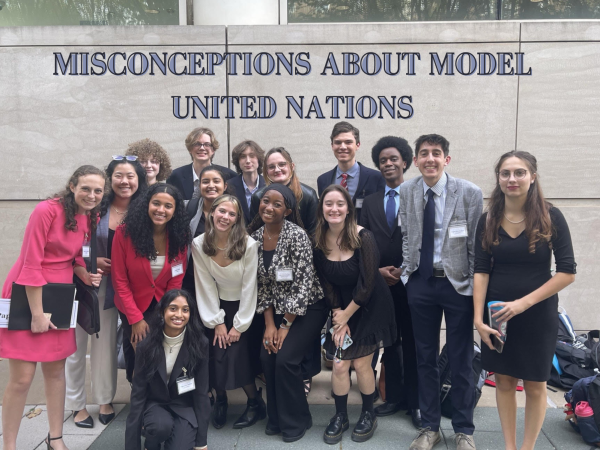First-generation students and college applications
Colleges encourage underprivileged and first-generation students to apply because they want the school to stand prominent in diversity. Unfortunately, colleges fail to sympathize with the significant disadvantage placed on certain students and reject them. If the students receive an acceptance and attend college, they yet again stand at a disadvantage among their counterparts. Because first-generation students’ parents typically earn less due to lacking higher education, first-generation students bear the stressful financial burden of college as well as the stress to prove themselves to their parents.
May 3, 2023
The general population of high school students who plan to attend college can converse with their parents and counselors to stand out in college admissions. With proper guidance, these students preparing for college can feel confident as they apply and take on their college journeys. Unfortunately, first-generation college students must take a different approach and feel a sense of uncertainty because they lack the necessary resources and experience for college—especially since their statuses impact their college outcomes.
“I am already taking college courses throughout my high school years so that I can work on my major as soon as possible [when I attend undergraduate school]. You earn more of an independent persona when you are considered a first-generation student,” junior Christine Oliveria said.
Though colleges seek first-generation students and state that they consider the statuses on their common data sets, colleges mainly do so to claim diversity and do not sympathize with any faults on the students’ resumes. Research on first-generation students and their application data has revealed that compared to their continuing-generation counterparts, first-generation students submit fewer applications to colleges and receive fewer acceptances from college admissions. This discovery yet again proves that colleges seek out first-generation students to boost their diversity, but do not consider any flaws in their applications. Moreover, the reason first-generation students submit fewer applications likely stems from their underconfidence and lack of guidance about college. If colleges recognize the hardships that first-generation students face during college application season, these students will hold equal chances of acceptance as other students.
“As a first-generation student, I didn’t have much of a ‘role model’ in my family when it came to college education in the United States. I overachieve so that I can soon tell my family I made it. The choices I made being a first-generation student are to make school my main priority,” Oliveria said.
First-generation students lack a parent who previously attended college, thus depriving students of skills such as building a resume and discovering which college best serves them. The Common Application has worked to assist first-generation students by reaching out to minority and first-generation students and offering direct admission to one of the Common Application’s partner institutions. Despite the Common Application’s wonderful assistance, school systems should work to cater to first-generation students’ academic needs as they prepare to experience college. Rather than simply seeking first-generation status to boost college diversity, admissions and academic systems should work with first-generation students to relieve financial and emotional burdens.
Though first-generation students receive additional consideration from college admissions, they still do not hold equal opportunities to continuing-generation students. Despite various scholarships presented to first-generation students, these students rarely hold access to these materials and suffer in college anyway. High school counselors and college admissions must take action and guide first-generation college students through their educational endeavors.



















